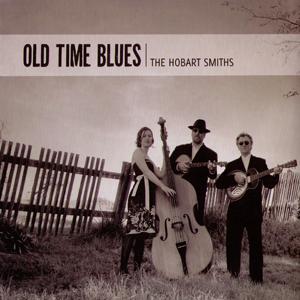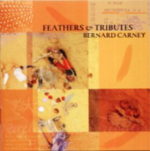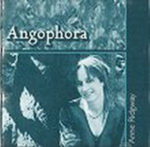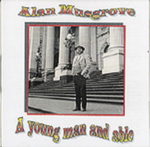Description
CD Review by John Hamilton
Hobart Smith was a musician from Saltville, Virginia, who died in 1965.
He was a banjo virtuoso, playing from 1915, active in the 1940s and finding a resurgence in popularity during the folk music revival in the 1960s.
His repertoire was varied.
He played old time blues and Appalachian folk music.
He favoured the clawhammer banjo.
YouTube and Spotify feature several of his pieces, including ‘Railroad Bill’ and his version of ‘Wayfaring Stranger’.
The Hobart Smiths are a 3-piece Tasmanian band, who follow their muse in repertoire, adding their own playing style, choice of instruments and tempo variation.
They juggle many elements and achieve a fine balance on this disc.
This album has three faces.
First and foremost, it’s a traditional blues album, including versions of many traditional blues tales, such as Boll Weevil, John Henry and The Cuckoo.
Secondly, it’s eclectic, varying from traditional and folk tales and across a mixture of blues formats.
Thirdly, despite the variety, it’s unified.
The overall mood is upbeat.
The songs carry you along, and I found my feet tapping and body swaying to most of them.
So, let’s look at the sources of variation.
There are also varied tempos and traditional forms.
Each of the three band members, Gerry Balding, Rachel Gates and Fred Pribac, take lead vocals on individual tracks, while some use a combination of their voices, particularly on choruses and refrains.
The result is varied vocal and emotional tone, well matched to the pieces on which they sing.
The fiddle is a hero in many of the songs.
The double bass sets up a strong rhythm.
But the band members play several instruments each, producing deft combinations throughout the tracks.
Included are finger picked guitar, slide guitar, double bass, banjo ukulele, clawhammer banjo (a favourite of their “mentor”), mandolin & guitar.
As for the many traditions sampled here, they sample folk, country and a broad range of blues stylings.
There are several distinct tones, all of which evoke the range of familiar traditional blues.
The album title is most apt.
Let’s start with their version of Old Joe’s Bar.
The cover notes correctly state that “there is something mythical about St James Infirmary…The late Jack Teagarden called it “the oldest blues song I know”.
The song is such a perennial favourite of mine that to me it seems like the central soul of this collection.
I’ve collected more than 100 versions of it.
The Hobart Smiths folky take on it stands happily beside the scores of New Orleans-tinged folk versions.
But the whole collection distinguishes itself, evoking a range of moods.
Think of: Ry Cooder-type delivery on ‘Boll Weevil’; music hall on ‘You Just As Well Let Her Go’, ‘Bootlegger Blues’ and ‘The Cuckoo’; “hillbilly western range” on ‘Dark Holler Blues’; wayfaring stranger territory for ‘Blind Fiddler’; and smoky basement on ‘New Orleans Hop Scop Blues’.
‘John Henry’ is described in the notes as a Texas folk song.
It’s a straight traditional reading with plucky banjo and guitar interplay.
‘CC Rider’ and ‘The Cuckoo’ get mid-tempo presentations, with direct, almost intimate vocal tone.
‘River of Jordan’, a Blind Willie McTell number, gets almost a moonlight lilt.
Think of ‘Lonesome Valley’.
It has a tone that nicely melds blues and gospel.
The slide guitar is lovely.
‘I’ve Been Here a Long Time’ uses the traditional tune also used on the blues classic ‘Sitting On Top Of The World.
Despite the many elements, however, there is a strong sense of unity across the performances.
This is a solid blues album, with a consistent, confident and clean sound, with clear lyrics and strong melody.
A good description might be country blues, though the content expands beyond that label.
As we move through the album, it feels like we’re being escorted along a multi-textured road, one that we’re happy to travel on.
It isn’t dark or despondent blues.
The combinations of forms, voices, pacing and instruments, result in a jaunty, detailed and yet light finish.
This tone draws us on as the album unfolds.
‘Cyprus Grove’, however, brings the journey home.
It’s a well chosen finish.
Lyrically, it’s possibly the darkest blues theme of the collection.
It offers a threat and a decision to move on “where I just do not know”.
It promises a future where “..you’ll reap what you sew…”.
The cover notes indicate that the band has been “playing old time country and acoustic blues music in the Coal River Valley since 2009”.
Judging by this album, they’ll be doing so well into the future.
Let’s hope they develop a broad audience appreciation.




